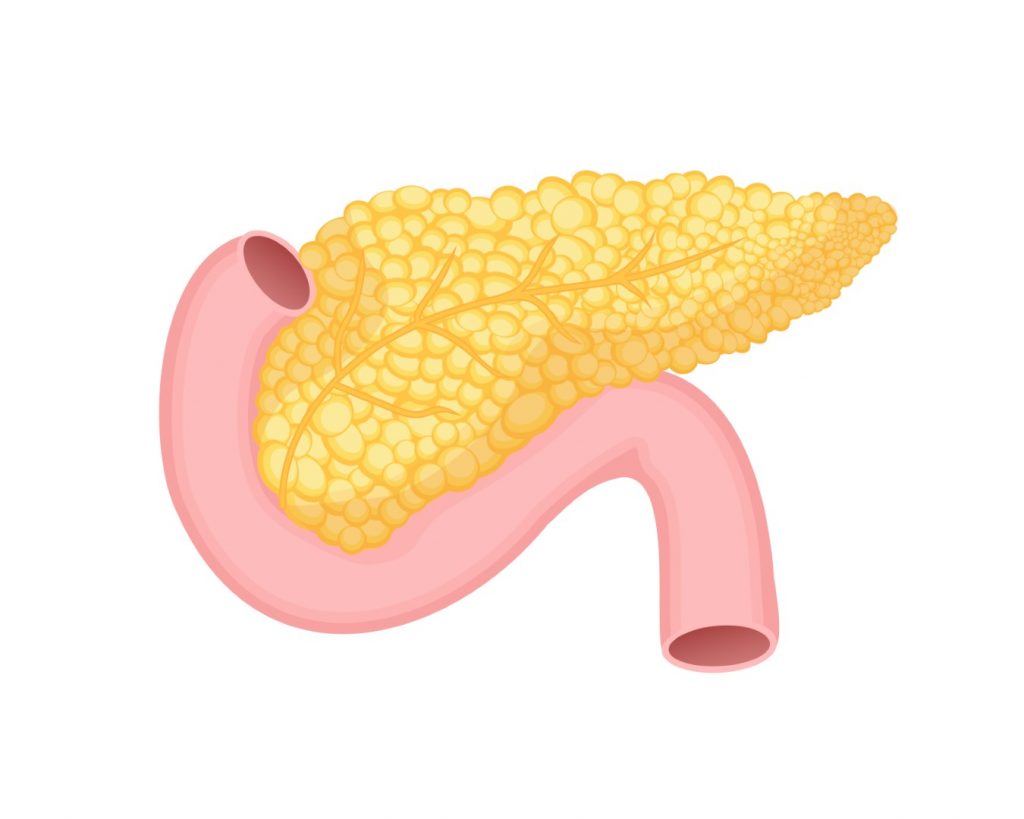
Pancreatic cancer treatment
Introduction to pancreatic cancer
As the name suggests, pancreatic cancer is cancer that starts at the pancreas, an organ in our abdomen that lies behind the lower part of your stomach. The role of the pancreas is to release enzymes that aid digestion and produces hormones that help manage your blood sugar.
Pancreatic cancer is difficult to spot until it reaches an advanced stage because it is hard to detect/ diagnose. Having diabetes and exposure to certain chemicals increases the chance of this type of cancer.
The pancreatic cancer treatment plan for you depends on the location and size of the tumour and whether or not it has spread to other locations in the body.
The usual signs of suffering from pancreatic cancer are weight loss and jaundice.
Symptoms of pancreatic cancer
Most people do not experience symptoms until the cancer has reached an advanced stage. If they experience symptoms, they are mild and usually dismissed.
- Itchy skin
- Nausea
- Vomiting
- Urine is dark coloured
- Stools are pale
- Tiredness
- Loss of appetite
- Skin becomes yellow
- Jaundice
- Upper abdominal pain
- Diabetes
If you suffer from pancreatitis, a condition due to the inflammation of the pancreas, you are more likely to develop pancreatic cancer. There are two types of cancer; pancreatic neuroendocrine and traditional pancreatic cancer.
Risk factors
- Exposure to chemicals which are used by dry cleaners and metal workers.
- Having chronic pancreatitis.
- Obesity or carrying too much weight around the waist.
- Smoking or tobacco.
- Hereditary factors, including genetic syndromes with gene changes.
- Men are more likely to be susceptible.
- Being more than forty-five years of age.
Diagnosis of pancreatic cancer
It is difficult to detect this cancer in the initial stage because doctors cannot feel the pancreas in a routine exam. If health care providers suspect that you have pancreatic cancer, they will instruct you to have imaging tests, where tests are done by taking pictures of your internal organs.
An endoscopy is done, which allows imaging of the pancreas through the stomach. If needed, a biopsy is also done. In a biopsy, tissues are removed and tested.
For people suffering from this type of cancer, a substance called carbohydrate antigen, a type of protein is found in the cells, indicating pancreatic cancer. Blood tests also indicate tumour marker, which is also a sign of pancreatic cancer.
Patients should consult their hepatologist and check whether they have developed the condition because of hereditary or other reasons.
Pancreatic Cancer Treatment
The pancreatic cancer treatment depends on the tumour’s location and the stage. Doctors will also check your health status and whether cancer has spread beyond the pancreas.
- Radiation therapy is done using high-speed energy used to kill cancer cells. Doctors also use radiation to relieve the pain that the tumour causes.
- Targeted therapy is done by targeting specific genes or proteins. This treatment uses drugs to attack unique aspects of cancer cells.
- Immunotherapy is a treatment done to help your body fight against cancer. This technique is ineffective, but it does benefit one per cent of the population.
- Chemotherapy is a treatment that uses drugs to destroy cancer cells in the body. This treatment stops the growth of cancer cells.
- Surgical removal is done to remove the cancerous part of the pancreas. The lymph nodes which are positioned near the pancreas are also removed. Surgery is considered as the best way to treat the condition.
- Clinical trials are usually done if suggested by the doctor. Health care providers usually find a clinical trial for you based on your location and diagnosis.
The good news is even though pancreatic cancer is a severe disease, it can be cured if diagnosed early.
This type of cancer is more common in developed countries. The reasons for which are unknown. However uncommon it may seem, pancreatic cancer is the seventh most common cause of cancer death.
Maintaining a good body weight, reducing your intake of alcohol and reducing smoking can reduce your risk of getting pancreatic cancer.
Contact Us:
Reach out to chennai liver foundation if you know anyone suffering from pancreatic cancer . We can provide details about pancreatic cancer treatment and prevention.
Find out more about pancreatic cancer treatment in Chennai at Chennai liver foundation a well known liver hospital.
